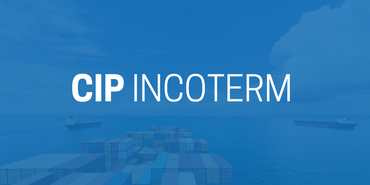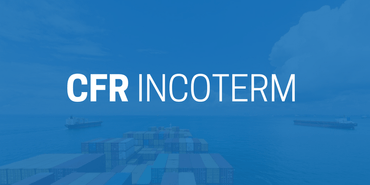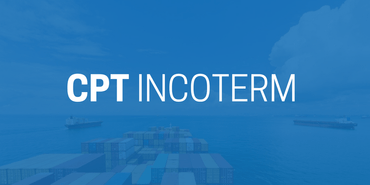
Definition of the CIF Incoterm (Cost, Insurance and Freight)



![]()
The CIF Incoterm is exclusively used for ocean freight and remains unchanged in the Incoterms 2020. Under CIF, the seller is responsible for:
- Booking sea freight to the destination port designated by the buyer.
- Purchasing insurance that covers the goods during transit (at minimum, Institute Cargo Clauses C).
- Bearing all costs and risks until the goods are loaded on board the vessel at the port of origin, at which point the risk is transferred to the buyer.
**Recommended Use:
**CIF is suitable for bulk or conventional cargo, where the seller has direct access to the vessel. It is not advised for containerized cargo, as containers are typically delivered to the terminal days in advance, creating a “gray area” of responsibility if damage occurs before loading. For containers, better alternatives are CIP (multimodal with higher insurance coverage) or CFR if the buyer prefers to arrange insurance.
Seller’s Obligations under CIF
- Delivery of goods and contractual documentation
- Proper packaging and labeling
- Inland transport to the port of origin
- Export clearance and departure costs
- International sea freight to the destination port
- Cargo insurance (minimum ICC Clause C)
Buyer’s Obligations under CIF
- Payment for goods as per the contract
- Arrival port charges (handling, fees)
- Import clearance and payment of VAT, duties, and taxes
- Inland transport to the final destination
Insurance under CIF (Incoterms 2020)
- The seller must purchase insurance with minimum coverage under ICC Clause C (110% of invoice value).
- Under CIP, the required insurance coverage is ICC Clause A (“all risks”), which is broader than CIF.
- If the buyer wants broader coverage, CFR (freight only, no insurance) may be chosen, allowing the buyer to arrange their own insurance.
Why CIF is Not Suitable for Containers
| Problem | Explanation | Alternative |
|---|---|---|
| Risk transfer before the container is fully loaded | Risk transfers when the goods are on board; the container may sit at the terminal for days with insufficient coverage | CIP (risk and insurance to destination) or CFR + buyer's insurance |
| Gray area of responsibility | Terminal damage is hard to assign: seller or buyer? | Multimodal rules with terminal delivery (FCA/CIP) |
AI-Powered Freight Services at iContainers
CIF pricing includes freight and insurance, making cost transparency especially important. iContainers applies AI to break down Incoterm-related costs and explain how each component impacts the final price. This helps shippers compare scenarios with confidence. Explore AI-powered Incoterm cost analysis for smarter freight planning.
Related Articles


